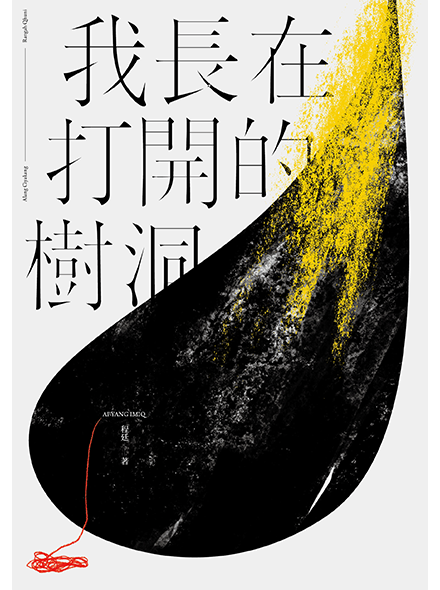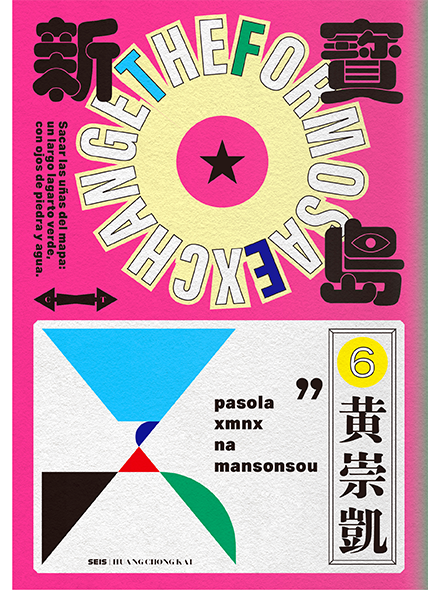Growing Up in a Tree Hollow is a collection of literary essays by a gay Truku Indigenous farmer-intellectual named Apyang Imiq. The collection can be characterized as a personal and ethnographic memoir: after obtaining a master’s degree at Taiwan’s top graduate school of geography in 2011, Apyang Imiq stayed in Taipei for a few years after graduation, but never felt at home there; so he decided mid-decade to return home to the village of Ciyakang on the east coast, to turn himself into a farmer, and to chronicle Truku life past and present.
Six of the 27 essays in the collection won him recognition at the Mandarin-language Indigenous literary awards from 2015 to 2020. The rest were completed on a composition grant awarded in 2020. Published in May 2021 by Chiu Ko, the collection won Apyang Imiq a best new author award at the 2021 Taiwan Literature Awards at the end of October. The author has made a coherent whole of the essays by arranging them into three sections, about labor, local geography, and cultural development respectively, and via a leitmotif: overcoming Marxist “alienation”.
As he later realized, he was alienated from his culture growing up. His ancestors were hunters, but as a boy he couldn’t tell a muntjac from Bambi.[*] When he started feeling alienated from his hometown as a graduate student, he decided to set off on a quest for roots. He’d hunted for a job as a college graduate, now he hunted with an old-fashioned muzzle-loaded rifle in his own hunting ground. He’d eaten hamburgers made of beef from Brazil, now he planted millet and raised chickens on his own plot of land. He’d worn t-shirts made of Xinjiang cotton, now he spun ramie fiber into yarn, which he wove into garments of his own design. Raised on Disney and Doraemon and later on Stephen Chow, he now turned his attention to the larger-than-life Truku characters, both living and dead, in his community. Growing up speaking Mandarin, he took a Truku language class and began using his ancestral language in daily life.
He also uses Truku in his essays. By the end of the collection, the reader will have built up a basic Truku vocabulary, including the words for mother/female, father/male, grandmother, grandfather, tree, hollow, name, river, bird’s nest fern, pigeon pea, millet, banana, betel nut, hoe/work, work-share, house/home, wind/spirit, ancestral spirit, boulder, stone/rock, other shore, path/road, boundaries (both personal and territorial), body/flesh (of his crops, of prey animals, and of his boyfriend), penis/dick, vagina/snatch, and culture/morality.
He dwells on the derivations of some of these terms to develop a vocabulary for overcoming alienation in Truku. Powda, the word for ritual pig slaughter derives from the verb mowda, meaning to go along or across. When there isn’t an owda, a way, to mowda, people make one, and when the state puts up a “No Thru Road” sign, they ignore it. The author traces the river that flows along the village, a metaphor for his investigations of tribal history. Along the way, he has to cross the water, which to him represents both same-sex desire and the flood of opinion about its supposedly antisocial effects. He ultimately makes it across the yayung, the river, to the sipaw, the other side. His step-father, who was horrified when he came out of the closet on social media, eventually helps him repair the pipe that draws water from the river to irrigate his field. The last essay is about a powda held to celebrate a same-sex union on this bank of this river – the Rangah Qhuni, literally “tree hollow”, an image he associates with freedom, shelter, and eros: the hollow is an open space, a refuge for a drowned classmate, and the crack of his boyfriend’s ass.
In ending the collection with this riverside powda, Apyang Imiq suggests that he has gotten himself and his boyfriend woven, tminun, into the local social fabric. As represented in the collection, the social fabric of Ciyakang is constantly changing as local people weave their own and alien threads into a new garment. The author’s grandmother participated in the process by reweaving a woolen sweater she had received from an American missionary into a shawl decorated with a traditional pattern, the dowriq utux, the eyes of the ancestors, keeping watch on the living to see that they are living according to the all-encompassing gift economy of Gaya, meaning morality or cultural tradition.
The author has a piquant sense of kari, speech or language, which, as he notes, sounds like “curry”. He spices up his Mandarin style with Truku syntactic patterns, for instance a title that might be translated: “Shoot that bhring(spirit, vital energy)-filled gun of yours at me.” He also has a taste for irony, particularly as concerns interethnic and intergenerational relations. When archaeologists turn up jades on a nearby hilltop, they get the dig declared off limits to the local descendants of the people who, several hundred years ago, traded for the jades. Bird’s nest fern is associated with Taiwanese Indigenous cuisine, but it used to be a famine food and is now only cultivated in Indigenous villages like Ciyakang as a cash crop to sell to Han Taiwanese and Japanese gourmands. A previous generation of Han Taiwanese agronomists convinced local farmers to use pesticides and herbicides, and now a new generation, of do-gooders, comes to persuade them to go organic; the only organic farmer in Ciyakang, Apyang Imiq hears from his elders about how he is going about it all wrong until he harvests his first bumper crop. Having pursued Taiwan-style middle-class aspirations – his step-dad is a retired local official, his mother an insurance agent – his church-going parents enjoy lecturing him about “Truku tradition”, but the tradition that they claim was hostile to homosexuality turns out to be anything but: when the author discovers that hagay, meaning something like fag, homo, or sissy, was originally the word for shaman, the villager who communicated with the utux, the ancestral spirits, he reclaims it by translating it affirmatively as two-spirit person.
A modern-day shaman, Apyang Imiq is a cultural translator, in the sense that he is well aware that most of his readers are not Indigenous. The fact that the collection is written partly or mainly for a Han Taiwanese audience speaks to its translatability into English. But what is the potential market for an English translation of the collection? As a collection of literary essays, it might not have the reach of novels about gay Indigeneity like Almanac of the Dead by Leslie Marmon Silko, The Beet Queen by Louise Erdrich, or Kiss of the Fur Queen by Tomson Highway, but it should appeal to readers interested in Indigenous issues around the world, and could appear in a list of must-read queer essay collections compiled by anyone committed to diversity and inclusivity. As the essays in the collection can be read in isolation, they could easily be anthologized. Scholars of Indigenous literature around the world like Qwo-Li Driskill and Daniel Heath Justice could study it and more importantly assign it, or essays from it, in college courses. It should have a particularly strong appeal in Hawaii and New Zealand, English-speaking territories with Austronesian peoples, the native Hawaiians and Māori, who are distant relatives of Taiwan’s Indigenous First Nations.
Read more:
- Apyang Imiq: https://booksfromtaiwan.tw/authors_info.php?id=381
- Growing Up in a Tree Hollow: https://booksfromtaiwan.tw/books_info.php?id=420
[*] The “b” in banbi, the romanization of the Mandarin transliteration of Bambi, is actually a [p], so that Bambi alliterates with pada, the Truku word for muntjaq, also known as the barking deer.

